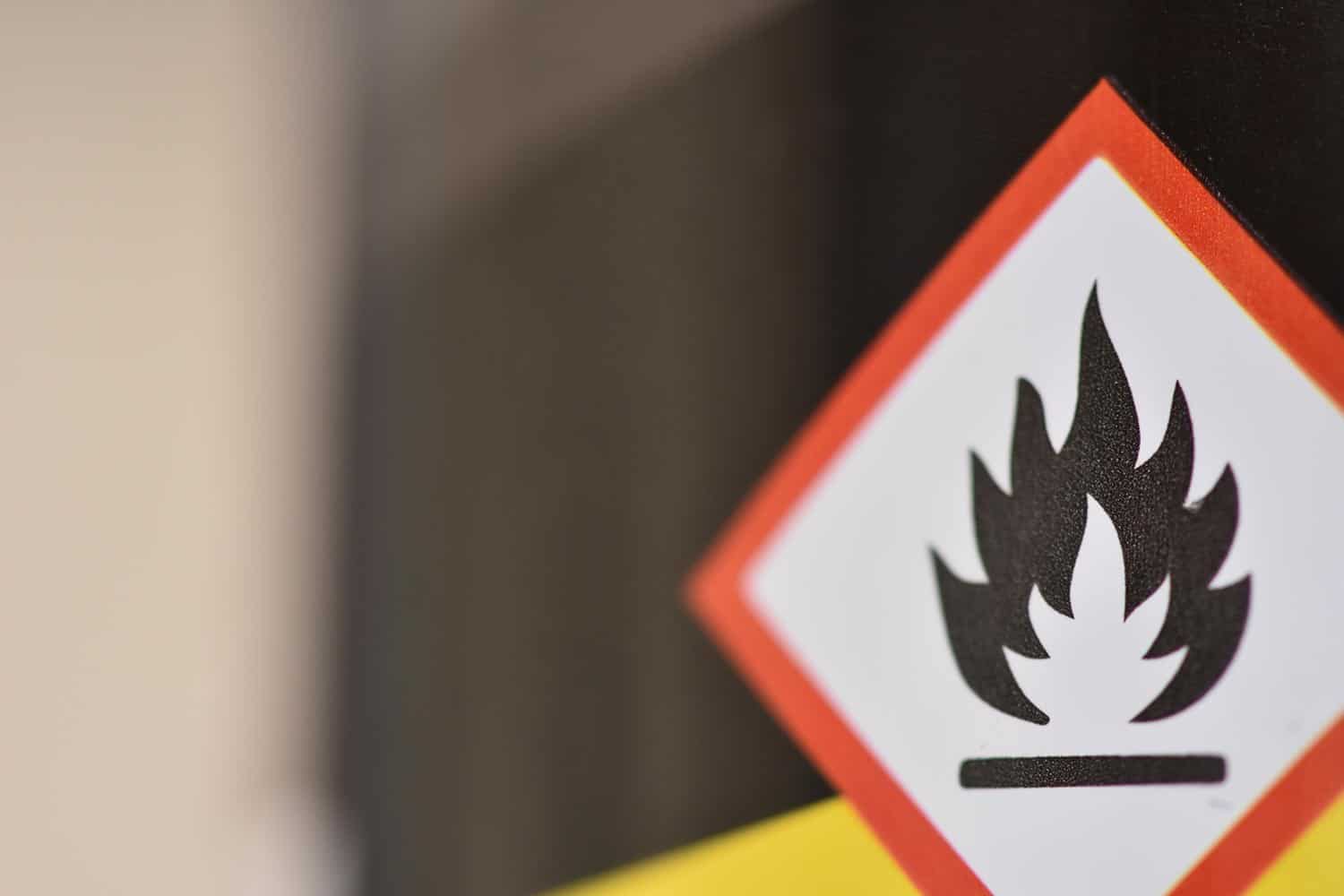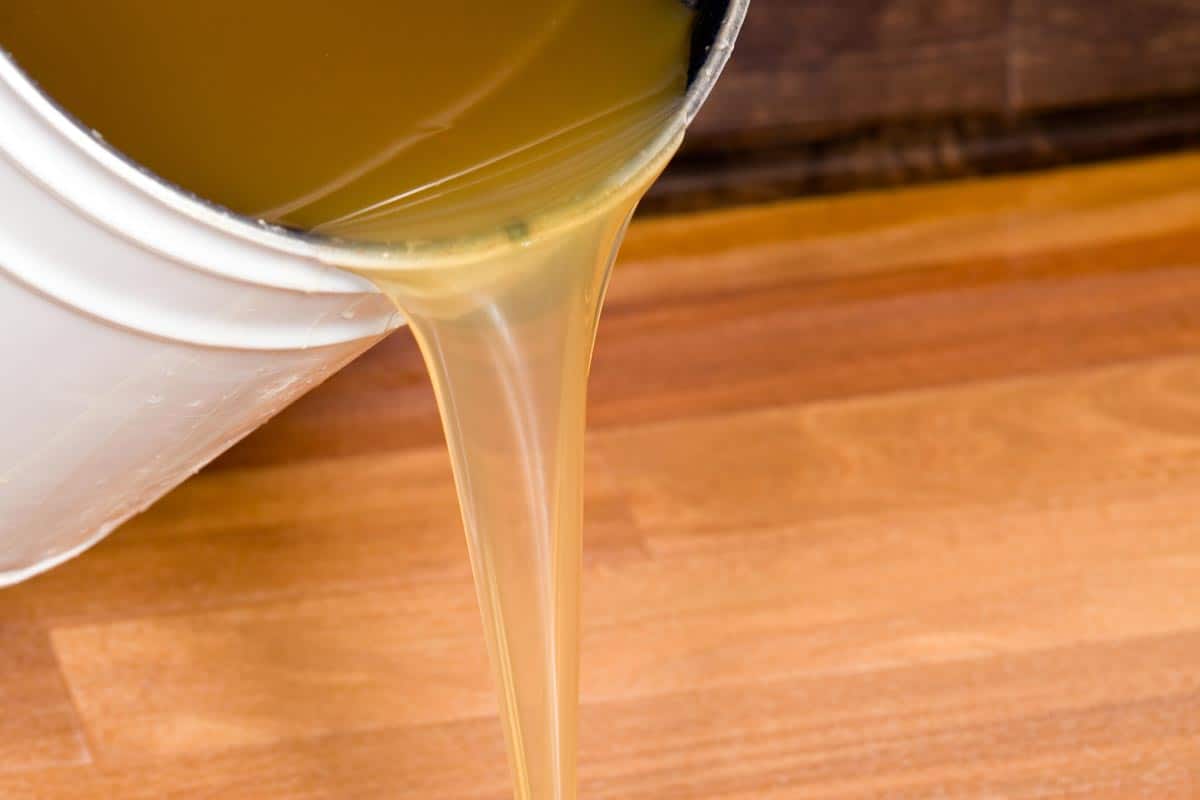After multiple home improvement projects, you inevitably start to collect various tools and products. Having all these extras probably makes you wonder how long they'll last. Do you have a can of polyurethane sitting around that you want to use but don't know if it has expired or if that's even possible? We have done the research to find you the answer.
Polyurethane does expire, but it should last you a while. Generally, an unopened can of polyurethane will last you close to three years, while an opened one should stay usable for about 12 months. When it comes to storing polyurethane, keep it in a sealed container and make sure it doesn't sit outside in the elements.
As we begin, we will cover all things polyurethane and discuss the best ways to store it. Whether you already have a can in your garage or want to get one for a project, storing polyurethane correctly is essential to its longevity and quality. With that said, let's jump right into this topic!
![Pouring a polyurethane clear coat on hardwood floor, Does Polyurethane Expire? [And How To Store It For A Longer Shelf Life!]](https://uooz.com/wp-content/uploads/2021/10/Does-Polyurethane-Expire..png)
How Long Is Polyurethane Good For In The Can?
Typically, you can expect a can of Polyurethane finish to last you up to three years if you keep it unopened. Once you decide to use your product, this is when you will have between six and 12 months to finish it off before it becomes too hard/crusted to use.
Although this timeline is different for every product, polyurethane tends to crust and cure once you open it, so storage will make a difference.
How Should You Store Polyurethane?
Storage-wise, you want to keep polyurethane in a sealed container and ensure there isn't space between your product and its lid. According to Wood Worker's Journal, a good way to keep polyurethane from hardening/expiring is to fill your opened can with marbles or rocks to eliminate any space in its container.
Follow this link to see these marbles on Amazon.
They also recommend creating a barrier between your polyurethane and the air in its container with plastic, so that is another idea to try. Regardless, as long as there isn't too much space in your can, you shouldn't need to worry about it expiring.
Is It Okay To Use Old Polyurethane?
Generally, as long as your polyurethane isn't hard and doesn't smell sour, you should be okay to use it. If you forgot to fill your can with marbles or rocks or left it cracked open, it is super important to check your product before using it on your flooring or furniture.
With that said, we wouldn't recommend using polyurethane that is over five years old, even if it looks fine because the chances are it won't apply well to your surfaces.
How Do I Know My Polyurethane Is Bad?
If you suspect your polyurethane has expired, there are a few signs to look out for. First, check your product's consistency and look for chunks or a top layer of film, which indicate your polyurethane has started to cure.
Next, smell your product, and if it has a sour scent, it has expired and should go into the garbage. A good way to test your polyurethane is to apply it to a piece of glass or wood and let it dry for 24 hours. If after a day goes by and your polyurethane has dried, that means it is okay to use.
What Can You Do With Old Polyurethane?

If you have old polyurethane sitting around, we recommend disposing of it. To do this, do the following:
- Leave your can of polyurethane open outside, allowing it to cure/fully harden.
- Check your local waste and recycling protocols to decide where you should bring your expired product.
- Schedule a drop-off or pickup with waste management or a recycling company.
- Seal your product and hand it over to the appropriate person/department.
Although this may seem like a hassle, polyurethane can be dangerous to the environment, so it is important to stick to the proper protocol for its disposal.
Is Polyurethane Hazardous Waste?
When it comes to polyurethane being hazardous waste, we found this to be true. According to Advanced Science News, polyurethane releases toxic chemicals into the air when it's incinerated or as it decomposes in a landfill, so following proper disposal protocol is essential.
On top of that, polyurethane can also decompose into environmentally damaging substances, so this is not something you want to be careless with.
What Ingredients Are In Polyurethane?
Ingredient-wise, polyurethane mainly consists of di- and tri-isocyanates and polyols. In general, polyurethane is used to make rubber, wood, and metal products and items like sealants, adhesives, and coatings.
Although the actual ingredient list of polyurethane will vary depending on what type of product it is in, you can expect it to have a thick consistency and a glossy finish.
What Is Polyurethane Used For?
Typically, polyurethane is used to coat wood surfaces, like flooring or furniture, and helps protect them from scratching and damage. Polyurethane also acts as a water-repellant, making it great for outdoor sealing and weatherproofing your exterior floors.
There are also polyurethane foam products, which include bedding and cushioning, which are very popular and usually less expensive than other options.
Minwax Water Based Oil-Modified Polyurethane
This water-based polyurethane has a low odor, protects and adds shine to interior wood, dries quickly, and comes in a one-gallon container.
Click here to see this on Amazon.
How Flammable Is Polyurethane?

In general, polyurethane is a highly flammable substance. Polyurethane will typically have a flashpoint of 105 degrees Fahrenheit, which is when it vaporizes and becomes an ignited substance.
With that said, some polyurethane products do have fire-retardant chemicals added to them to prevent a fire from happening, but you can never be too sure.
Can Polyurethane Spontaneously Combust?
Although this is uncommon, spontaneous combustion is possible if your polyurethane releases enough fumes into the air and heat is present. Leftover rags covered in stain or oil products are usually to blame for spontaneous combustion fires, including polyurethane.
A good habit to develop while using polyurethane is always to keep it sealed between uses and never to leave a soaked towel or cloth outside because spontaneous combustion can happen. We also recommend throwing any polyurethane-soaked products into a bucket of water to ensure that a fire doesn't develop.
Is Polyurethane Toxic?
When it comes to polyurethane being toxic, this is true. Polyurethane-based products are known for causing respiratory problems and can be very dangerous if you inhale/swallow them.
Uncured polyurethane can cause breathing problems like asthma and is especially harmful to young children and the elderly. That said, as long as you wear a mask while using polyurethane and store it somewhere safe, you shouldn't run into these issues.
SharpShine Respirator Half Mask Face Cover
This respirator mask is good for indoor/outdoor projects, has lightweight elastomeric material, won't affect breathing, and comes with four cotton filters.
Check out this mask on Amazon here.
Can I Keep Polyurethane Outside?

Storage-wise, you want to keep polyurethane in a cool, indoor location away from children and pets. Like we covered earlier, polyurethane products don't last long outside and will begin to vaporize if they get too hot.
Generally, as long as your product's temperature stays between 60 and 95 degrees Fahrenheit, it should be fine, but we don't recommend keeping polyurethane outside. On top of that, long-term exposure to temperatures outside this range can damage polyurethane and cause it to become unusable, which is why storage is so important.
To Wrap Things Up
Whether you use polyurethane products often or just bought your first one, knowing their shelf life is essential. Polyurethane does expire but should last you up to three years if left unopened.
When it comes to keeping your polyurethane from expiring, we recommend adding marbles or rocks into the bottom of its can to help eliminate extra space that can cause it to cure/harden. Location-wise, try to keep your polyurethane in a cool, indoor spot, like your garage, so it won't get too hot and vaporize. Regardless of your project, make sure to protect yourself while using polyurethane, and don't forget to dispose of it properly.
Need more info on home improvement products? Check out these helpful posts below!
How Long Does It Take For Wood Glue To Dry?



